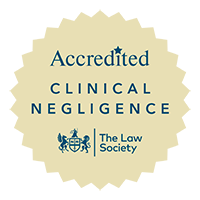Top ranked cerebral palsy claims lawyers

Boyes Turner’s cerebral palsy birth injury specialists have secured a liability settlement for a boy with dyskinetic cerebral palsy, cerebral visual impairment, epilepsy and learning disability. The liability (fault) aspect of the claim settled for 90% of full value before court proceedings were issued, despite apparently normal midwife records of the fetal (unborn baby) heart rate during labour and the defendant hospital’s formal denial of liability.
The child’s mother attended the hospital’s maternity centre in the evening, having gone into labour and had contractions all day. She was examined, her labour confirmed and the fetal heart rate was noted to be normal. The midwife noted an appropriate care plan which included regular recordings of the fetal heart rate. The next morning she was examined again and the labour was progressing. Further monitoring of the fetal heart rate was planned to take place by intermittent auscultation. It was also noted that there was a shortage of midwives.
The entries in the mother’s maternity records suggested textbook monitoring and normal fetal heart rates throughout the rest of her labour were recorded. Our specialist lawyers, however, believed that the midwife’s fetal heart monitoring records were incompatible with the baby’s poor condition at birth and devastating brain injury.
At birth he was floppy, blue, with a dangerously low heart rate and making no attempt to breathe. There was a delay in calling for help from the paediatricians. He needed resuscitation and cooling and was transferred to the neonatal unit. His condition, blood tests and a later MRI scan of his brain all suggested that he had suffered HIE (hypoxic ischaemic encelphalopathy) from an acute, near total lack of oxygen in the minutes leading up to and immediately after his birth. The postnatal treatment of cooling very likely significantly reduced the extent of neurological damage.
We pursued our client’s claim against the defendant on the basis that our client’s condition meant that signs of fetal distress would have been evident to the midwife if correct monitoring had taken place. The abnormal fetal heart rate would then have led to an expedited delivery and our client would have been born before permanent damage was caused to his brain.
The defendant hospital responded to the claim by denying liability, relying on the midwife’s records which suggested that the unborn baby was healthy throughout labour and delivery. They required the claimant to prove his case, namely that what was written in the maternity records was wrong. However, shortly afterwards, we successfully negotiated liability settlement on the basis that the defendant pay 90% of the full value of the claim.
Had the claim proceeded to liability trial we would have had to persuade the court that the midwife’s monitoring of the fetal condition was negligent, and that proper monitoring would have identified signs of fetal distress sufficiently early for an emergency caesarean section to have been performed, which would have avoided our client’s injury. While the defendant would, ultimately, have had to accept that mistakes in fetal monitoring were made, our client’s claim would be at risk if their medical experts argued that proper monitoring would not have led to delivery in time to avoid our client’s injury.
Judgment has been entered and a substantial interim payment obtained which will be used to meet his immediate needs whilst we work with his family and our experts to assess the full value of his claim.
If you are caring for a child or young adult with cerebral palsy or neurological disability caused by negligent maternity or neonatal care and you would like to find out more about making a claim, contact us by email at cerebralpalsy@boyesturner.com.
They have a great deal of knowledge and expertise, and client care seems to be their top priority.
Chambers Guide to the Legal Profession
Contact our expert Cerebral Palsy solicitors today for support with your claim




